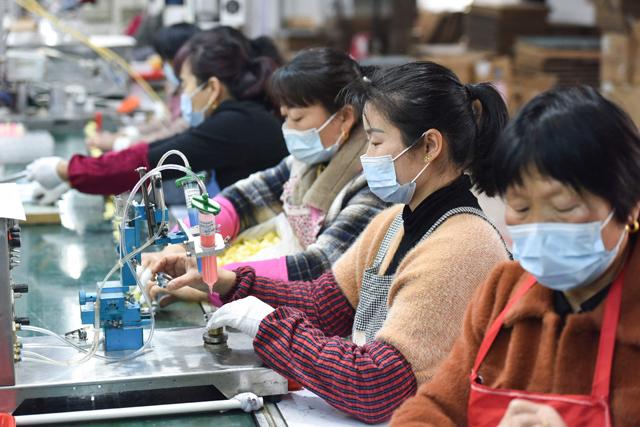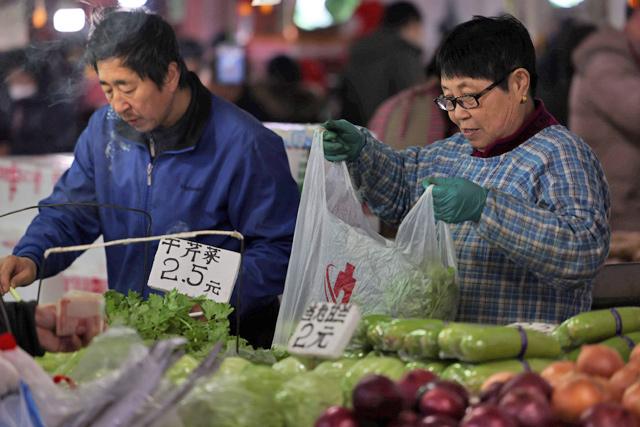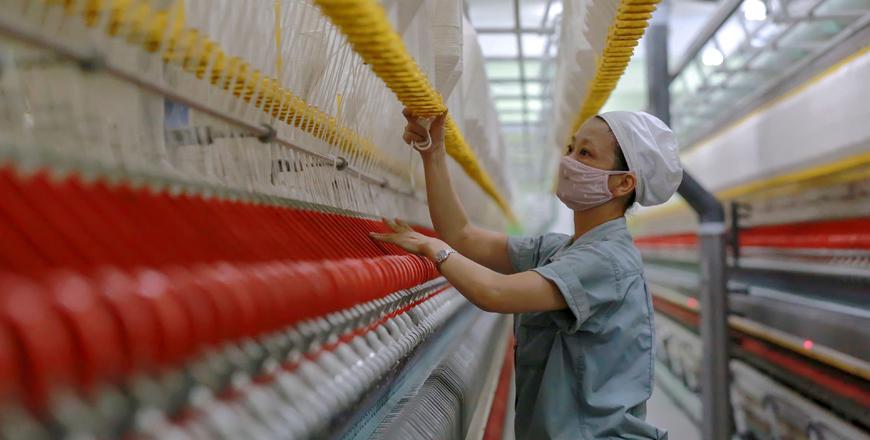You are here
China factory inflation higher than expected
By AFP - Apr 11,2022 - Last updated at Apr 11,2022

This file photo taken on March 31 shows employees working on an assembly line producing speakers at a factory in Linquan county, Fuyang city, in China's eastern Anhui province (AFP photo)
BEIJING — China's factory-gate inflation was higher than expected in March, official data showed on Monday, as Russia's war on Ukraine pushes up oil prices while a domestic COVID-19 resurgence strains food supplies and consumer costs.
The producer price index (PPI) — measuring the cost of goods at the factory gate — grew 8.3 per cent on-year, National Bureau of Statistics (NBS) figures showed.
This was slightly more than a Bloomberg poll of economists expected, while PPI also rose on-month.
"Geopolitical and other factors have pushed global commodity prices to continue increasing, driving the prices of oil, non-ferrous metals and other related industries to rise further domestically," NBS Senior Statistician Dong Lijuan said in a statement.
China's consumer price index (CPI), a key gauge of retail inflation, rose more than expected as well, by 1.5 per cent on-year in March, the NBS said.
Although consumer demand eased after festive periods earlier in the year, some food prices have picked up due to "rising international prices of wheat, corn and soybeans" and domestic COVID-19 outbreaks, Dong said.
This comes as world food prices hit an all-time high in March following Russia's invasion of Ukraine, an agricultural powerhouse, according to a UN agency.
Russia and Ukraine make up a massive share of exports in major commodities such as wheat, vegetable oil and corn.
Zhaopeng Xing of ANZ Research said energy prices had "become the major driver for both CPI and PPI".
"CPI inflation could rise further in April as households across China have been stocking up on food and other necessities after taking lessons from the fallout of Shanghai's lockdown," Nomura's Chief China Economist Ting Lu said.
As the financial hub locked down almost entirely in recent weeks, residents had trouble getting groceries while COVID controls snarled supply chains to the rest of the country.
"Due to lockdowns and transport disruptions in northeast China, the largest grain production base in China, this year's spring farming may have been delayed and the risk of food shortage may rise in the second half," Lu added.
This piles pressure on the worsening global food shortage caused by the military conflict in Ukraine, he said.
Related Articles
BEIJING — China's consumer prices dropped more than expected in November on falling food costs, with a key gauge turning negative for the fi
BEIJING — Chinese factory inflation rose more than expected in July, data showed on Monday, as surging commodity prices offset government me
BEIJING — China's factory gate inflation jumped in August to a 13-year high, with data on Thursday showing a surge in commodity prices as th


















